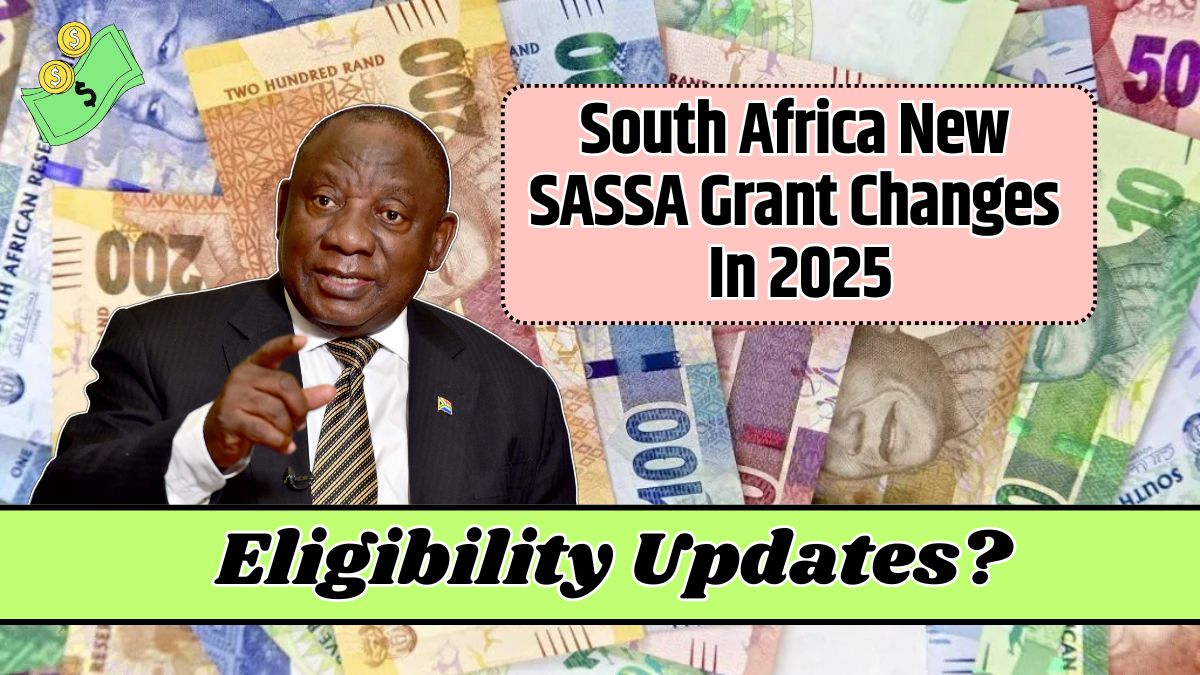The South African Social Security Agency (SASSA) remains a lifeline for millions of South Africans, offering grants to reduce poverty and provide financial relief.
Significant updates to SASSA grants were announced for 2024, including adjustments to grant amounts, stricter eligibility requirements, and the extension of the Special Relief of Distress (SRD) R350 Grant.
Here’s a detailed look at these changes and how they may impact beneficiaries.
Key Updates for 2024
Extension of the SRD R350 Grant
The Special Relief of Distress (SRD) R350 Grant, introduced during the COVID-19 pandemic, has been extended until March 2025.
Changes to the SRD Grant:
- Monthly Increase: The grant will rise from R350 to R370 starting April 2024.
- Government Expenditure: This adjustment will cost the government an additional R3.2 billion for the 2024/25 financial year.
While the R20 increase aims to offset inflation, many recipients argue it’s insufficient to meet rising living costs.
Changes to Other SASSA Grants
Grant Amount Adjustments
Increases to several other grants were announced in two stages: April and October 2024.
| Grant Type | April Increase | October Increase | Total Increase | New Monthly Amount |
|---|---|---|---|---|
| Old Age Grant | R90 | R10 | R100 | Up to R2,110 |
| War Veterans Grant | R90 | R10 | R100 | Up to R2,130 |
| Disability Grant | R90 | R10 | R100 | Up to R2,110 |
| Care Dependency Grant | R90 | R10 | R100 | Up to R2,110 |
| Foster Child Grant | N/A | N/A | R50 | R1,180 |
| Child Support Grant | N/A | N/A | R20 | R350 |
Additional Top-Ups:
- Child Support Grant: Eligible recipients can receive an additional R250, increasing their total monthly payment to R750.
While these increases are intended to help address inflation, they fall short of covering the growing cost of essentials like food, utilities, and transportation.
New Eligibility Requirements
SASSA introduced updated eligibility criteria and fraud prevention measures in April 2024 to improve the efficiency and integrity of the system.
Key Changes
- Biometric Verification:
Beneficiaries must verify their identity using biometric data, such as fingerprints, to receive payments. This measure prevents fraud and ensures grants are allocated to the correct recipients. - Recovery of Incorrect Payments:
SASSA will recover funds from individuals who were mistakenly paid grants despite being ineligible. - Updated Contact and Banking Information:
Beneficiaries are required to keep their contact details and banking information updated to avoid disruptions in payments.
Preparing for the Changes
To ensure uninterrupted payments and compliance with new regulations, beneficiaries should:
Update Personal Details
- Keep your contact information and bank account details current with SASSA.
- Respond promptly to any communication regarding eligibility or verification.
Complete Biometric Verification
- Visit a SASSA office or designated center for biometric enrollment when requested.
Review Your Eligibility
- Regularly check your status to ensure you remain eligible for grants under updated rules.
Impact of SASSA Grants
Economic Significance
SASSA grants play a critical role in reducing poverty and supporting vulnerable groups. These payments often help cover:
- Food
- Utilities
- Transportation
- Education-related expenses
Beneficiary Concerns
Despite incremental increases in grant amounts, many beneficiaries struggle to meet basic needs due to rising inflation and economic pressures.
Advocacy groups continue to call for more substantial adjustments to align grant amounts with the actual cost of living.
How to Stay Informed
Beneficiaries can stay updated on SASSA grant changes by:
- Visiting the official SASSA website: www.sassa.gov.za.
- Following SASSA on social media for announcements.
- Contacting their local SASSA office for assistance.
SASSA’s ongoing updates reflect the government’s commitment to providing financial support, but challenges like administrative inefficiencies and rising costs remain barriers for many South Africans.

















